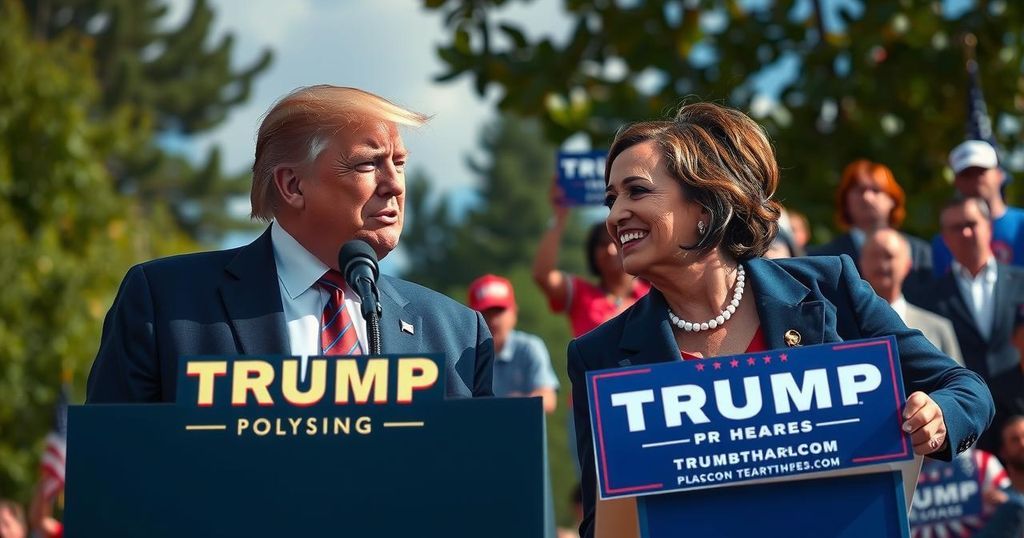As both Kamala Harris and Donald Trump campaign in swing states Arizona and Nevada, they aim to secure vital Latino votes that could determine the election outcome. Polls indicate a tight race, with Latinos historically leaning Democratic but showing increasing support for Republicans. Early voting statistics reveal a decline in Latino participation, raising concerns for both candidates.
In the ongoing battle for the White House, both Kamala Harris and Donald Trump have targeted the crucial swing states of Arizona and Nevada, where Latino voter turnout is anticipated to play a significant role. On Thursday, both candidates organized events in these states, which are recognized for their substantial Hispanic populations. Kamala Harris commenced her day with a rally in Phoenix, Arizona, while Trump made a brief detour to Albuquerque, New Mexico, despite the state not being competitive this election cycle. Trump stated, “I’m here for one simple reason: I like you very much, and it’s good for my credentials with the Hispanic or Latino community.” Recent polling data reveals that Latinos, who are estimated to represent a record-high 14.7% of eligible voters, typically lean Democratic but have recently shown increasing support for Republicans. A New York Times/Siena poll indicated Harris receiving only 52% of the Hispanic vote, a decline from Biden’s 66% in 2020, while Trump has garnered 42%. However, some of this progress for Trump may have been undermined by negative remarks made about the Latino community at his rally. The current electoral landscape shows both candidates nearly tied in the polls, with key states like Georgia, North Carolina, and Arizona favoring Trump, while Harris maintains slight leads in Wisconsin and Michigan. In the early voting period, turnout among Hispanic voters remains notably low, with only 2% of early ballots cast, significantly lower than their eligible voter share. Conversely, Black voters are participating more vigorously in early voting, making up 22% of the votes compared to their registered share. Harris enjoys higher support among women, who also account for a larger percentage of early voters compared to men. Harris criticized Trump’s recent statements about women, labeling them offensive and highlighting the importance of women’s autonomy in decision-making. Furthermore, Trump is counting on discontent with the current administration’s immigration policies to reclaim support in Arizona after losing it in 2020. Analyst Mike Madrid emphasized that the outcome of the race may hinge on which party is more successful with their fundamental voter bases, suggesting that Republicans are focusing on young, U.S.-born Latino men while Democrats are courting the defection of college-educated white Republican women. As the election nears, both candidates are making concerted efforts to sway Latino voters, recognizing their potential to influence the overall election results significantly.
The article discusses the strategies employed by Kamala Harris and Donald Trump as they focus on attracting Latino voters in the swing states of Arizona and Nevada during the final days of the campaign. Given the historical voting patterns of Latino communities and their increasing registration rates, both candidates are intensifying their outreach efforts. Furthermore, demographic voting patterns are showcased, highlighting the importance of early voting trends and how they might impact this crucial election cycle.
In summary, the race for the presidency is particularly competitive as both Kamala Harris and Donald Trump focus on attracting Latino voters in critical swing states. Polling data underscores a shift in Latino support towards Republicans while highlighting the challenges Democrats face in maintaining their traditional base. With early voting trends showing a decline in Latino participation, both candidates are swiftly adjusting their campaign strategies to enhance voter engagement and turnout. The election outcomes in these states could play a pivotal role in determining the next President of the United States.
Original Source: www.aljazeera.com






